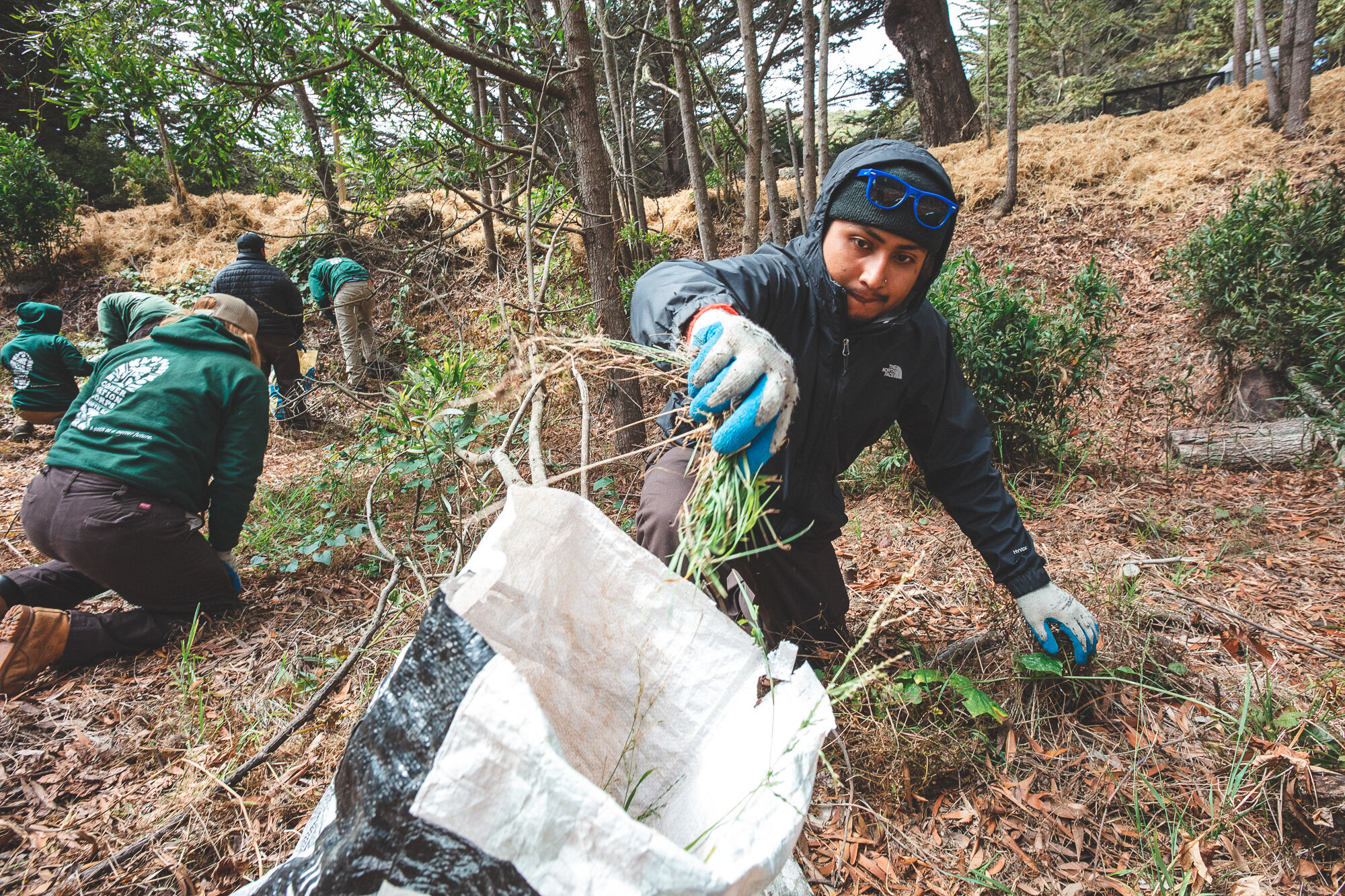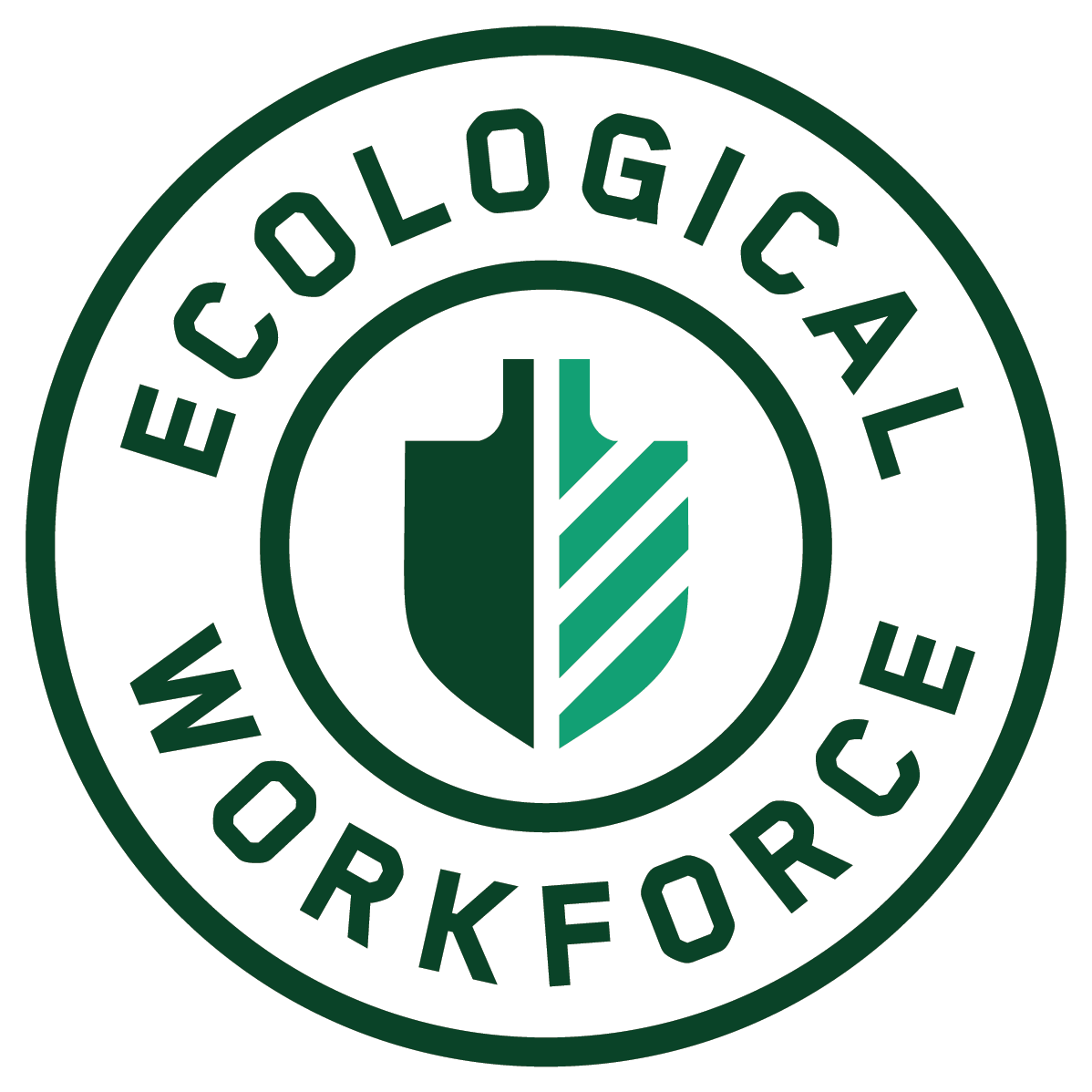
Ecological Workforce Training Program
The Ecological Workforce is comprised of the on-the-ground trade workers who implement ecological restoration projects, often directly interfacing with sensitive and protected resources. The Ecological Workforce Training Program provides a high-quality curriculum that teaches the skills and understanding required to work appropriately in sensitive habitats like wetlands, rivers, lagoons, grasslands, woodlands and forests. Our goal is to assure that these workers, whose jobs are integral to project success, are properly equipped with the knowledge they need so that species and habitats are protected, permit restrictions are adhered to, and environmental project goals are achieved.



TRAINING PROGRAM
ECOSYSTEM RESTORATION
Discuss the wide variety of restoration project types and the need for undertaking environmental restoration and mitigation efforts.
ENVIRONMENTAL LAWS AND REGULATIONS
Deliver an in-depth overview of the key state and federal environmental laws and policies in place to protect and enhance water quality, air quality, habitats, fish and wildlife and cultural resources.
UNDERSTANDING THE “WHY”
Develop an understanding of the reasons for environmental protection measures, the goals of permit conditions, and the need for their adherence.
INFORMED DECISION MAKING
Provide the ecological context for restoration projects and provide the tools to make better environmental protection decisions during construction.
IMPROVED PROJECT OUTCOMES
Enable better project outcomes by teaching how to work appropriately in sensitive habitats, in proximity to species of concern, and within permitting constraints.
RESPECT AND RECOGNITION
Build recognition that the on-the-ground workers are an integral part of restoration efforts and that they have a critical role to play in project success.

ECOLOGICAL RESTORATION IS A TEAM EFFORT
Understanding the laws and regulations, and the agencies that enforce them, is critical to restoration success.



ECOLOGICAL TRAINING OUTCOMES
An understanding of what Environmental Restoration is and why there is a need to protect and restore our natural resources.
Familiarity and comfort with the various state, federal, and local governmental agencies involved in environmental protection.
A strong grasp of how various state and federal agency regulations interact and overlap with each other and the worker’s role in helping implement key laws and regulations
Appreciation of the need to work within permitting constraints in order to protect water quality, air quality, sensitive species and their habitats, and cultural resources during project construction.

EDUCATION PARTNER
ALNUS ECOLOGICAL
Alnus Ecological is a sole proprietorship run and managed by Jim Robins. Jim has extensive experience in ecological restoration planning, riparian and stream ecology, salmonid ecology, rangeland management, land-use policy and environmental compliance. Much of his experience has focused on the synthesis and application of ecological data and principles to complex resource issues ranging from development and implementation of multi-benefit ecological resource projects to the design of regional environmental planning and compliance documents including the NOAA Restoration Center’s Programmatic Biological Opinion for Salmonid Restoration Projects, the Santa Cruz County Resource Conservation Investment Strategy, and the Public Works Plans to support Coastal Act Compliance for Forest Health and Fire Resilience Projects in San Mateo and Santa Cruz counties. The balance of Jim's work has been focused in Bay Area and Central Coast ecosystems, but he also brings experience from work in Southern California's Transverse Range and the Central Valley. Among other things, Jim is currently working with the California Landscape Stewardship Network and California Natural Resources Agencies on a statewide effort – Cutting Green Tape - to create new efficiencies in permitting and compliance that will help increase the pace and scale of implementing ecologically beneficial projects. Jim also has a passion for teaching and has helped design and teach environmental compliance and permitting classes in multiple venues.
510-332-9895
jrobins@alnus-eco.com









